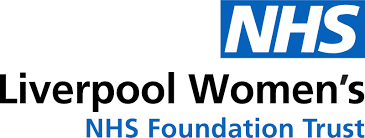Liverpool Women’s Hospital NHS Trust

The Challenge
Wanting to comply with the 2008 Climate Change Act, the Trust wanted to considerably reduce the 6.5 tonnes of plastic they incinerated per year. A large portion of this plastic use was made up of single-use disposal systems for sharps waste. This not only left them a dilemma of sustainability - but financially as the weighty containers were costly to incinerate.
The Trust’s environmental manager was also under pressure to introduce an offensive waste stream to the Trust in conjunction with existing guidelines.
Our Approach
STEP 1
Sharpsmart confirmed that all healthcare waste generated within the hospital’s clinical areas was being consigned as clinical waste and then incinerated. After conducting a comprehensive analysis of waste disposal processes within the Trust, it was estimated that Sharpsmart could divert 50% of this into a more compliant waste stream – without compromising quality or safety.
Trust worked with key stakeholders across the hospital (including infection control, Nursing Managers and Health & Safety) in order to implement the Sharpsmart reusable sharps system throughout the hospital. The fact that the containers are pre-assembled greatly minimised preparation time for nursing staff.
The reusable nature of the Sharpsmart has been peer-reviewed and studied to find that use of this system decreases CO2 emisions by 91% - futher contributing to the Trust's sustainability goals.
STEP 2
A year after the Sharpsmart sharps disposal system was introduced, with an observed 10% savings on sharps management costs in cmparison to the previous single-use plastic system, the Trust implemented Sharpsmart's Bag-to-Bedside system.
This system enforcing proper waste segregation and allowed point-of-use disposal, helping the Trust signigicantly reduce costs and minimize the risk of cross-contamintation. The Bag-to-Bedside system also meant that waste was being removed from the patient environment in areas where possible - leading to an increase in safety and infection control.
STEP 3
Inital findings showed a general lack of education around waste handling techniques meant that no substantial disposal methods had been implemented in order to ensure the Trust was following the waste hierarchy.
Sharpsmart provided an auditing system that allowed the Trust to see exactly what was being put into which healthcare waste container for disposal. The audits helped staff understand the root cause of some of the waste segregation issues they were experiencing. Correct waste segregation not only drives efficiency but lowers overall total costs because everything is being disposed of properly.
The Solution
Implementation the Sharpsmart reusable sharps container throughout the Trust
- Eliminating a portion of the single-use plastic that needed to be incinerated
- Providing a safer solution to clinicians. The Sharpsmart prevents container-related sharps injuries by over 80%
- Supporting the Trust's sustainability goal by using a reusable solution peer-reviewed to reduce CO2 emissions by 91%
A year after the sharps container implementation, introduction of Sharpsmart's patented Bag-to-Bedside system
- This system allows for point-of-use disposal for healthcare waste
- Encourages correct waste segregation
- Allows staff to remove waste from the patient environment as soon as possible
Ongoing Waste Audits
- Working with the Trust's staff, audit reviews would illuminate the root cause of some of their issues - enhancing waste segregation and proper disposal methods - providing a chance to focus on where education is needed.
The Outcome
Since introducing the Sharpsmart reusable sharps system, the Trust have been able to prevent 10 tonnes of polypropylene plastic from being incinerated, reduce CO2 emissions by approximately 56 tonnes, and save 10% on their sharps management costs.
The introduction of the Bag-to-Bedside system encouraged proper waste segregation and diverted 40% of waste form clinical to offensive, infectious and alternate waste streams - delivering a cost savings of 45%.
